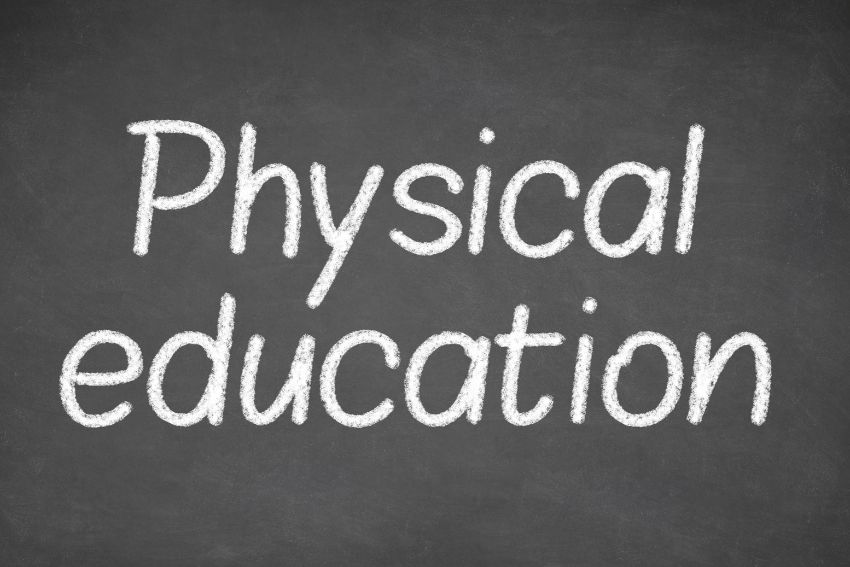Religious Studies at the GCSE level offers students a broad exploration of religious, philosophical, and ethical issues. This subject aims to deepen understanding of the world’s major religions, their foundational texts, and their cultural impact. Students learn about Christianity, Islam, Hinduism, Buddhism, Judaism, Sikhism, as well as non-religious perspectives like atheism and humanism.
Studying Religious Studies is crucial not just for spiritual or moral reasons but also for fostering a deeper appreciation of the diverse beliefs and practices that shape our global society. It equips students with critical thinking skills, enhances their ability to engage in informed discussions, and prepares them to participate more fully in a world where issues of faith and belief frequently intersect with politics, social policy, and ethical debates.
Through this course, learners are encouraged to question, debate, and reflect upon complex questions of existence, morality, and ethics, providing them with the tools to navigate the challenges of the modern world thoughtfully and respectfully. This foundational knowledge not only enriches their educational experience but also promotes tolerance and understanding in an increasingly interconnected global community.
Examination Boards and Specifications
GCSE Religious Studies is offered by several examination boards, each with its unique approach and specifications. Among the prominent ones, Eduqas stands out for its comprehensive and flexible curriculum designed to cater to a diverse student demographic.
Comparing Examination Boards:
Eduqas, AQA, OCR, and Edexcel all provide GCSE Religious Studies, but their focus and examination structure vary slightly to accommodate different educational philosophies and school preferences. For instance, while AQA emphasizes contemporary religious issues and ethical debates, Eduqas offers a distinctive choice between two routes, each with different thematic concerns and scope.
Eduqas Route A and Route B:
- Route A:
- Focus: This route is comprehensive, covering Religious, Philosophical, and Ethical Studies in the Modern World alongside a detailed study of Christianity and one other major world religion.
- Adaptability: It allows schools to choose between a full course and a short course, providing flexibility based on the school’s curriculum time allocations and students’ interests.
- Support: Eduqas provides extensive resources, including online teaching materials, example schemes of learning, and a booklet containing all textual references that appear in the specifications.
- Route B:
- Focus: Specifically designed for Catholic schools, this route includes a detailed study of Catholic Christianity and Judaism.
- Accessibility: The specifications are tailored to resonate with the ethos and values of Catholic education, ensuring that the teachings are relevant and deeply engaging for students in these institutions.
- Support: Similar to Route A, Eduqas offers robust support for teachers, including access to subject specialists and a wide range of digital resources to enhance teaching and learning experiences.
Both routes are designed with accessibility in mind, ensuring that students of all abilities can engage with the content effectively. Eduqas particularly prides itself on providing adaptable specifications that can be tailored to meet the diverse needs of students, alongside unparalleled support from experienced educational professionals.
This tailored approach not only facilitates a deeper understanding of religious studies but also ensures that all students have the resources and support they need to succeed in their examinations and beyond.
Core Components and Study Areas

GCSE Religious Studies is designed to cover a wide range of topics across religious, philosophical, and ethical dimensions. This comprehensive approach helps students gain a broad understanding of various beliefs and practices, alongside the philosophical and ethical implications that stem from these beliefs.
Religious, Philosophical, and Ethical Studies Components:
- Religious Studies:
- Focuses on the key beliefs, practices, and sacred texts of major world religions.
- Includes the study of rituals, ceremonies, and the historical context of each religion.
- Philosophical Studies:
- Encourages students to engage with fundamental questions about reality, existence, knowledge, values, reason, mind, and language.
- Promotes critical thinking and the ability to argue effectively and rationally.
- Ethical Studies:
- Deals with the concepts of right and wrong, moral debates, and ethical dilemmas.
- Explores how different religions and philosophies approach ethical issues like life and death, justice, and human rights.
Diverse Religious Traditions Studied:
GCSE Religious Studies typically includes an in-depth examination of several major world religions, which helps foster a comprehensive understanding of global cultural and religious diversity:
- Christianity: Explored through its doctrines, sacred texts (like the Bible), and its impact on societal values and laws.
- Islam: Studied through its teachings in the Qur’an, the life of Prophet Muhammad, and its cultural practices across different countries.
- Buddhism: Focuses on the life and teachings of Buddha, the concept of enlightenment, and philosophical teachings like the Four Noble Truths and the Eightfold Path.
- Hinduism: Covers a variety of practices, beliefs, sacred texts such as the Vedas and Upanishads, and the diverse expressions of devotion in its many sects.
- Judaism: Investigates its historical roots, key beliefs found in the Torah, and cultural practices.
- Sikhism: Looks at the teachings of the Gurus, the importance of the Guru Granth Sahib, and the community-centric practices of the faith.
Through the study of these religions, students not only learn about specific doctrines and practices but also about the philosophical underpinnings and ethical dimensions that influence wider societal interactions. This holistic approach ensures that students are well-prepared to understand and navigate the complex global landscape of the 21st century, promoting an environment of respect and understanding across different cultures and belief systems.
Skills Developed through Religious Studies

Religious Studies at the GCSE level is instrumental in developing a variety of critical academic and personal skills. The subject’s unique interdisciplinary approach combines historical, cultural, philosophical, and ethical studies, which contribute significantly to a student’s intellectual and empathetic development.
Critical Thinking and Analytical Skills:
- Evaluative Analysis:
- Students learn to examine religious texts and teachings critically, questioning the context, meaning, and implications of religious doctrines. This involves interpreting metaphors and symbols, comparing texts, and evaluating the impact of religion on various aspects of life and society.
- Argumentation:
- Religious Studies encourages students to construct and deconstruct arguments regarding complex and often controversial topics such as ethics, the existence of God, and the role of religion in modern society. This nurtures their ability to approach discussions with an analytical mindset, supporting arguments with evidence and logical reasoning.
- Comparative Analysis:
- By studying multiple religions, students develop the ability to compare and contrast beliefs, practices, and ethical viewpoints critically. This not only deepens their understanding of each religion but also enhances their general analytical skills by identifying patterns, differences, and similarities across diverse systems.
Extended Writing Abilities:
- Structured Writing:
- Students engage in extended writing tasks that require clear, structured, and well-thought-out exposition. They learn to structure essays that present coherent arguments, supported by evidence from religious texts, scholarly sources, and critical interpretations.
- Persuasive Writing:
- Religious Studies tasks often involve persuasive writing, where students must argue a point of view regarding ethical issues or interpretations of religious doctrine. This hones their ability to persuade logically and respectfully, skills that are valuable in academic and real-world contexts.
Impact on Students’ Ability to Construct Well-Argued and Balanced Arguments:
- Balanced Viewpoints:
- The subject demands that students consider and respect multiple viewpoints, fostering a balanced and inclusive approach to argumentation. This is particularly important in discussions involving moral and ethical considerations, where multiple perspectives need to be fairly represented.
- Critical Engagement:
- Students are taught to engage critically with both primary sources (such as religious texts) and secondary materials (like scholarly articles and criticisms). This nurtures a deep, nuanced understanding of issues, avoiding superficial or biased conclusions.
- Reflection and Self-Assessment:
- Regular reflection on their beliefs and values in light of their studies encourages students to develop personal integrity and the ability to articulate their positions clearly and respectfully. This reflective practice is integral to forming balanced, well-argued positions.
Overall, the skills developed through GCSE Religious Studies prepare students not just for further academic pursuits but for thoughtful, informed, and responsible participation in a diverse and pluralistic society. These skills are transferable to any field that values critical thinking, effective communication, and a thoughtful approach to complex social issues.
Assessment Formats and Expectations
GCSE Religious Studies assessments are designed to evaluate a comprehensive range of skills including knowledge retention, analytical abilities, and the capacity to engage with and reflect upon philosophical and ethical issues. Here’s a breakdown of the various types of assessments students may encounter and how these are structured to evaluate both knowledge and understanding.
Types of Assessments
- Examination Formats:
- Written Exams: Most boards assess Religious Studies primarily through written examinations. These exams typically consist of a mixture of short-answer questions and extended responses. Students are expected to demonstrate their understanding of religious teachings and their ability to analyse and evaluate religious and ethical arguments.
- Objective Type Questions: Some exam sections may include multiple-choice or matching-type questions that assess students’ factual knowledge of religious concepts, key figures, and significant events.
- Coursework:
- While not common for all boards, some examination boards may require students to complete coursework. This could involve extended essays or research projects on specific topics within the curriculum, providing students the opportunity to delve deeper into a particular area of interest.
- Possible Project Work:
- Research Projects: Students may be tasked with conducting research on a particular religious community or practice, which helps develop not only research skills but also empathy and a deeper understanding of diverse perspectives.
- Presentations: Some courses may include oral presentations where students present their findings on religious studies topics, helping to build communication skills and confidence.
How Assessments Are Structured
- Knowledge Assessment:
- Examinations and coursework in GCSE Religious Studies are structured to test students’ knowledge of different religions, their histories, key writings, beliefs, and practices. This involves recalling facts, explaining concepts, and describing the significance of religious phenomena.
- Understanding and Analysis:
- A significant portion of the assessment focuses on students’ understanding and analytical abilities. This includes interpreting religious texts, comparing and contrasting religious beliefs, and discussing the implications of religious teachings on individual and societal levels.
- Students are often required to evaluate arguments, critique sources, and develop well-supported conclusions about ethical and philosophical issues.
- Synthesis and Evaluation:
- Advanced assessment tasks require students to synthesise information from multiple sources and perspectives to form coherent arguments. They must also evaluate the impact of religious and ethical systems on contemporary issues, demonstrating a higher level of critical engagement with the material.
The assessment formats in GCSE Religious Studies are carefully designed to ensure that students are not only tested for rote memorisation but are also evaluated on their ability to think critically about complex issues, articulate their thoughts clearly, and apply their understanding in varied contexts. This holistic approach ensures that the assessments are robust and reflective of students’ comprehensive learning experiences.
Study Resources and Support for GCSE Religious Studies
GCSE Religious Studies is supported by a wealth of resources designed to enhance learning and provide comprehensive support to students throughout their course of study. Below is a detailed list of available resources, along with a spotlight on the specific support systems provided by Eduqas.
Available Resources:
- Textbooks:
- Most exam boards, including Eduqas, endorse specific textbooks that cover the entire syllabus. These textbooks are tailored to the specifications of each course and provide detailed explanations of key concepts, case studies, and examples.
- Revision Guides:
- Revision guides are invaluable for students preparing for exams. They typically include summaries of key topics, sample questions and answers, and tips for exam techniques.
- Online Materials:
- Interactive Websites: Many educational websites offer interactive learning modules, practice questions, and quizzes.
- Video Lectures: Platforms like YouTube have numerous channels dedicated to GCSE Religious Studies, offering tutorials and detailed explanations of complex topics.
- Podcasts and Webinars: These can be particularly helpful for auditory learners and are often available through educational websites and exam board portals.
- Past Exam Papers and Mark Schemes:
- Exam boards provide access to past papers and mark schemes which are crucial for exam practice and understanding the format and expectations of the assessment.
- Study Apps:
- Mobile apps can provide on-the-go learning through flashcards, quizzes, and interactive games that reinforce learning in a flexible, engaging manner.
Eduqas’ Support Systems:
Eduqas stands out for its robust support systems designed to assist both students and educators:
- Direct Access to Subject Specialists:
- Eduqas offers unparalleled support through direct access to experienced subject specialists. This means that students and teachers can directly contact experts for advice, clarification on syllabus content, and insights into effective study strategies.
- Digital Resources:
- Eduqas provides a comprehensive digital resources website that hosts a wealth of free material. This includes glossaries of key terms, example schemes of learning, and downloadable resources that support the teaching of their specifications.
- CPD Training and Workshops:
- Continuing Professional Development (CPD) opportunities are available for teachers, which help them stay updated with the latest teaching methods and curriculum changes. These are often provided for free and can include workshops, online training sessions, and feedback packages designed to enhance teaching efficacy.
- Online Exam Review:
- Eduqas offers an Online Exam Review service, which includes general data, exam questions, marking schemes, and examiner comments. This tool is invaluable for understanding how answers are graded and what examiners are looking for in responses.
By leveraging these resources and support systems, students and teachers can significantly enhance the learning experience and improve preparedness for examinations. The combination of traditional and digital resources ensures that learners have access to diverse tools that cater to different learning styles and needs.
Future Pathways after GCSE Religious Studies
Studying Religious Studies at GCSE provides students with a solid foundation for further education and a variety of career paths. This subject not only deepens understanding of diverse cultures and belief systems but also hones critical thinking and analytical skills that are highly valued across many fields.
Opportunities for Further Education:
- A-Level Religious Studies:
- Many students choose to continue their study of Religious Studies at A-Level. This advanced course delves deeper into complex philosophical, ethical, and theological issues and often includes more comparative studies between different religions.
- A-Level Religious Studies prepares students for higher education, particularly in humanities and social sciences, by developing their essay writing skills and their ability to construct and defend arguments.
- Degree Programs:
- Students can pursue undergraduate degrees in Religious Studies, Theology, Philosophy, or related fields such as Anthropology and Sociology. These courses often explore the impact of religion on society, historical contexts, and more philosophical and ethical considerations.
- Universities offer diverse modules that cover a broad spectrum of topics, from ancient mythology to contemporary interfaith dialogues.
Career Paths that Benefit from a Background in Religious Studies
- Education:
- Teaching at various levels, from primary up to higher education, is a common path. Educators with a background in Religious Studies are equipped to teach not only specific religious education courses but also contribute to broader curricular activities that promote cultural understanding and ethical discussions.
- Public Sector:
- Roles in the public sector, such as in community development, public policy, or international relations, can benefit from the multicultural and ethical insights gained through Religious Studies. Understanding diverse cultural backgrounds is crucial in these fields.
- Non-Governmental Organizations (NGOs):
- Work in NGOs, especially those focused on international aid, human rights, or intercultural dialogue, often requires a deep understanding of how religion impacts social structures and individual lives.
- Law and Advocacy:
- A background in Religious Studies is advantageous in the legal field, particularly in areas like human rights, immigration law, and family law, where understanding clients’ backgrounds and beliefs is crucial.
- Journalism and Media:
- Journalists covering topics related to social issues, religion, or ethics can benefit greatly from the analytical and empathetic skills developed through Religious Studies. The ability to present balanced perspectives on sensitive issues is enhanced by this background.
- Counselling and Social Work:
- Counsellors and social workers often deal with clients from diverse religious and cultural backgrounds. Understanding these perspectives can be crucial in providing effective support and advice.
Exploring Religious Studies at the GCSE level opens up a broad spectrum of educational and professional opportunities, making it a valuable subject for students with diverse interests and career goals. The skills and insights gained from this subject are applicable in numerous fields that value critical thinking, cultural sensitivity, and ethical reasoning.
Impact on Personal Development and Societal Interaction
- Personal Development:
- Studying religious principles can profoundly impact personal values, ethical standards, and life choices. Individuals often reflect on their beliefs and values in light of what they learn, fostering personal growth and ethical maturity. Religious studies encourage individuals to think critically about their morals and the morals of the societies they live in.
- Societal Interaction:
- On a societal level, religious studies play a crucial role in promoting social cohesion and understanding. By educating individuals about the beliefs and practices of different religions, societies can cultivate a climate of respect and understanding that reduces conflict and enhances cooperation among diverse groups.
- Influence on Policy Making:
- In the public sector, insights from religious studies are often applied to policy-making, particularly in areas related to social justice, education, and community welfare. Policymakers use knowledge of religious and cultural contexts to craft legislation that is both effective and respectful of the population’s diverse needs.
These real-world applications and impacts show that religious studies not only offer academic insights but also equip students with the understanding necessary to navigate and influence a complex world. The case studies underscore the subject’s relevance to contemporary issues, demonstrating its practical value in personal and professional contexts.
Conclusion
Exploring GCSE Religious Studies offers more than just an academic understanding of various religions; it equips students with critical thinking skills, ethical reasoning, and a deep appreciation for cultural diversity. This subject’s relevance extends beyond the classroom, influencing personal development and promoting healthier societal interactions through respect and understanding.
As we’ve seen through various case studies, the principles learned in Religious Studies apply directly to real-world scenarios—from fostering interfaith dialogues to influencing ethical business practices and shaping public policies. For students considering their future paths, whether in further education or various career fields, Religious Studies provides a robust foundation for becoming well-rounded, thoughtful individuals ready to contribute positively in a diverse world.
For those looking to extend their learning and achieve academic excellence in Religious Studies, Edumentors offers personalised tutoring from experts. Our tutors are not only knowledgeable but are skilled at tailoring their teaching methods to each student’s unique needs. Explore our tutoring options today to enhance your understanding and preparation for GCSE and beyond.








